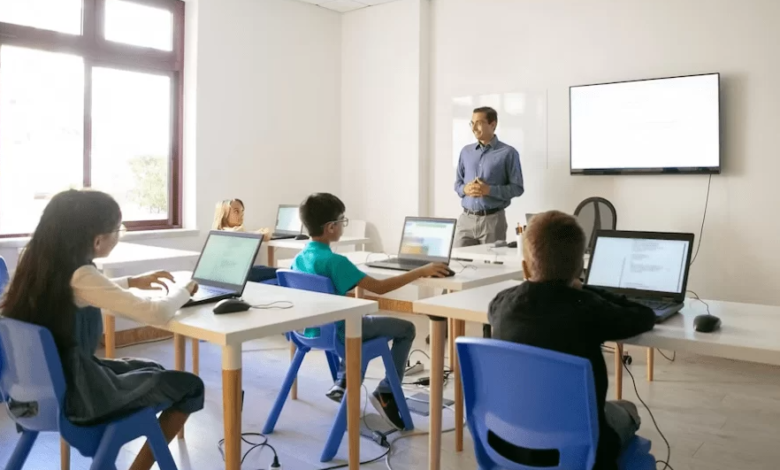The Role Of Educational Speakers In Modern Learning Environments

The importance of educational speakers in classrooms, conferences, and professional development settings has grown in a time when education is changing quickly. No longer are these speakers confined to motivational soundbites or once-a-year school assemblies. Today, educational speakers are influential voices in shaping modern learning environments—bridging the gap between theory and practice, introducing diverse perspectives, and inspiring meaningful conversations that extend beyond the classroom.
Bridging Theory And Real-World Experience
One of the most significant contributions of educational speakers is their ability to connect abstract concepts with real-world applications. Whether speaking to high school students, college undergraduates, or professional educators, these speakers bring context and relevance to the material being studied. Educational speaker insights in climate science, for instance, can take textbook theories about global warming and translate them into compelling stories from field research. Similarly, an entrepreneur can demonstrate how classroom principles of economics or marketing play out in the business world.
This real-world connection is especially important in modern education, where students often question the practicality of what they’re learning. Educational speakers make it clear that knowledge isn’t just something to be memorized for exams—it’s a toolkit for navigating and impacting the world. Their presence validates the curriculum and reinforces its value in meaningful ways.
Fostering Engagement And Curiosity
Traditional classroom instruction—while essential—can sometimes struggle to maintain student attention in a world of constant digital stimulation. Educational speakers bring fresh energy to the learning environment, offering a change of pace that revitalizes attention and interest. Their stories, personal journeys, and dynamic presentation styles have the power to captivate even the most distracted learners.
Moreover, these speakers often inspire curiosity by introducing topics not always covered in the standard curriculum. A talk on artificial intelligence by a tech professional or an interactive session on mental health by a psychologist can open students’ eyes to new areas of interest. By presenting information in a narrative or experiential format, speakers foster a deeper emotional connection with the subject matter, an essential component of effective learning.
Encouraging Inclusivity And Diverse Perspectives
Diversity in educational content is more crucial than ever. A diverse spectrum of cultural, professional, and personal backgrounds is common among educational speakers, who offer distinctive viewpoints that push students to think critically and sympathetically. These voices can offer new narratives that reflect a broader understanding of the world, something traditional curricula may not always be equipped to do comprehensively.
For example, an Indigenous educator sharing their community’s history offers insights that may not be fully explored in standard textbooks. A refugee sharing their journey can provide a firsthand perspective on global migration and human rights issues. These perspectives enrich students’ understanding and help build a more inclusive and socially aware learning environment.
See also: Say Goodbye to Double Bookings with an Easy Room Scheduling Tool
Supporting Educator Growth And Professional Development
Educational speakers are not only valuable for students—they play a key role in professional development for teachers and educational leaders as well. By presenting on topics like classroom innovation, trauma-informed teaching, or adaptive technology, these speakers provide educators with new tools and strategies to enhance their own teaching methods.
In today’s fast-changing world, teachers are expected to continually evolve and adapt. Educational speakers bring the latest research, trends, and pedagogical insights to the forefront, helping educators stay informed and effective. Often, these sessions serve as both a refresher and a source of inspiration, reminding teachers why they chose the profession in the first place.
Promoting Lifelong Learning
Perhaps the most lasting impact of educational speakers lies in the promotion of lifelong learning. When students and educators witness someone speaking passionately about their area of expertise—whether it’s literature, physics, or social justice—it reinforces the idea that learning doesn’t stop at graduation. It becomes something we pursue because we are curious, because we want to grow, and because we want to make a difference.
Educational speakers model what it means to be an engaged, informed citizen. Their presence sends a powerful message: learning is not confined to the classroom—it’s a lifelong journey filled with stories, struggles, successes, and discovery.
Final Thoughts
The role of educational speakers in modern learning environments is not supplementary—it is essential. They bring relevance to theory, stimulate engagement, offer diverse perspectives, support educator development, and model lifelong learning. Educational speakers will continue to be vital allies in developing engaging, inclusive, and influential learning environments as educational institutions and schools continue to adjust to the needs of a changing world.





